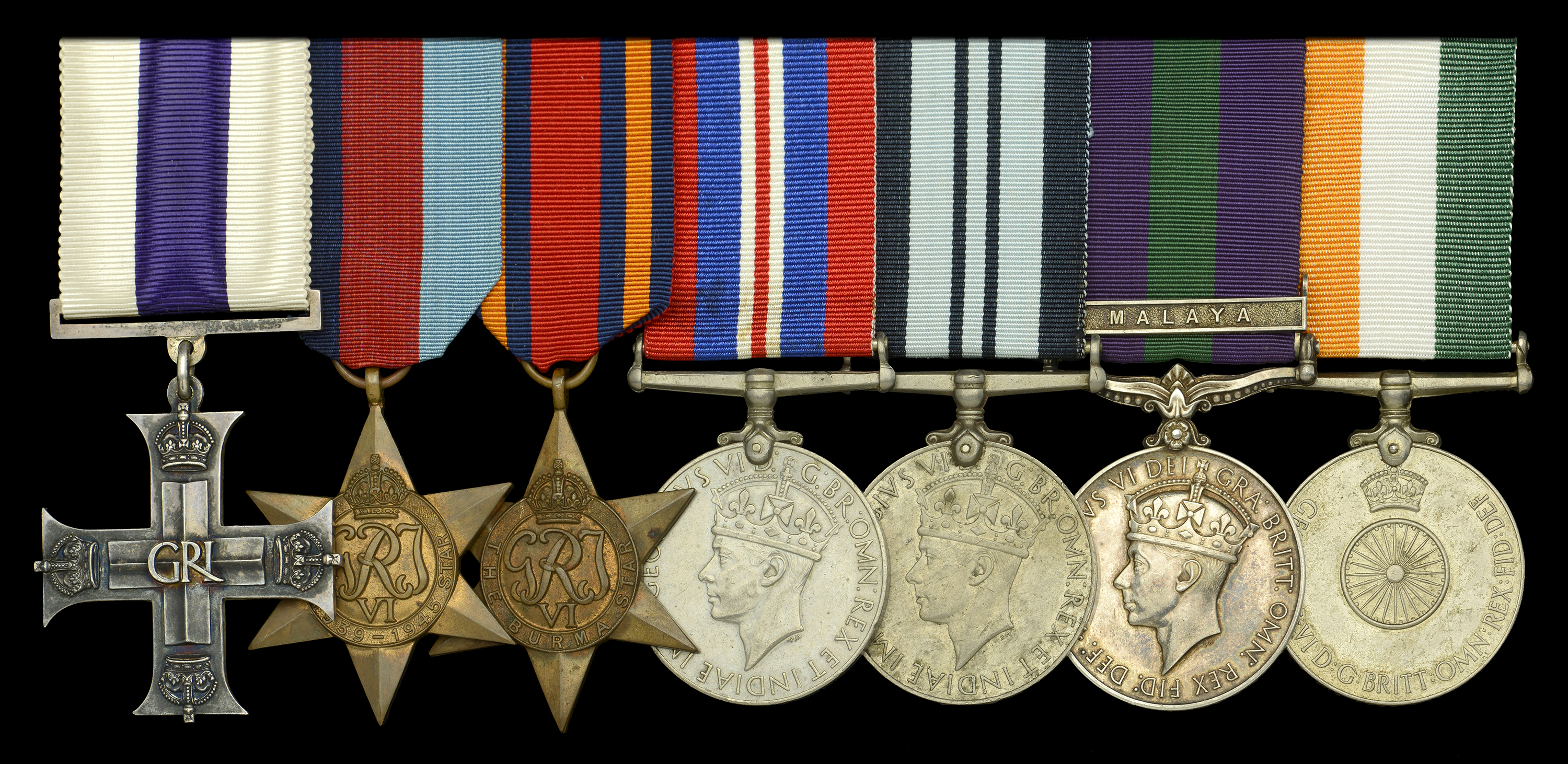A fine Second War 1945 ‘Burma Operations’ M.C. group of seven awarded to Jemadar Padamlal Rai, 1/7th Gurkha Rifles, 17th Indian Division, Indian Army, who took on ‘fanatical’ Japanese resistance when making a night reconnaissance of an enemy-held village - the information gleaned and the neutralisation of three enemy snipers prevented heavy losses the following day and enabled the deployment of valuable resources elsewhere Military Cross, G.VI.R. reverse officially dated 1946; 1939-45 Star; Burma Star; War Medal 1939-45; India Service Medal; General Service 1918-62, 1 clasp, Malaya, G.VI.R. (Capt. Padamlal Rai. 7. G.R.) naming re-impressed; Indian Independence Medal 1947 (388515 Sub. Padamlal Rai. M.C. GR.) minor official correction, generally very fine (7) £800-£1,200 --- M.C. London Gazette 6 June 1946. The original recommendation states: ‘From the crossing of the Irrawaddy River up to the capture of Meiktila this Officer commanded the Commando Platoon. Throughout this period his leadership was outstanding, his resource and coolness in danger was a byword in the Battalion. Time and again this Officer’s Platoon was called upon to carry out the most hazardous tasks usually behind the enemy lines, and every time the task was well done. He has built for himself a reputation for sterling courage, first class leadership, and cool daring in the face of danger which has been equally by only a few men of this Battalion. The following incidents illustrate some of the hazardous tasks his Commando Platoon was called upon to carry out during the recent operations, and the results that his leadership achieved. At Kandaung on 2 April 1945 the enemy had been offering fanatical resistance to the attack of another Battalion of this Brigade, with the result that the attack did not penetrate their position. Accordingly, Jemadar Padamlal was ordered to take his Platoon into the enemy held village during the night and find out the strength of the enemy. All night long he probed fighting strong outpost positions thrown out by the Japs. At early dawn he succeeded in pushing a Section into the village which killed three snipers and found that the main body of the enemy had withdrawn. The information gained by his Platoon in time resulted in the cancellation of a Battalion attack supported by Air, Artiller, and Tanks laid on for the next day.’ Padamlal Rai enlisted into the Indian Army on 21 November 1932. Appointed to a commission as Jemadar on 19 May 1944, he was awarded the Military Cross whilst serving with the 1/7th Gurkha Rifles in Burma; heavily engaged since the start of the campaign, the 1/7th Gurkha Rifles fought with distinction in the Moulmein area at the opening of the Japanese offensive in January 1942. Carrying honours for Sittang 1942, the unit also had the satisfaction of being recognised with further honours for Sittang 1945, where it presided over the final Japanese defeat. Raised Subedar on 1 January 1948, Padamlal Rai went on to serve two tours of duty in Malaya, the latter culminating in his sudden death on 30 September 1952 at the British Military Hospital in Kamunting, a consequence of internal bleeding. Such an affliction was likely caused by a bleeding ulcer, itself precipitated by a bacterial infection associated with the humid climate and primitive conditions. Padamlal Rai was later buried at the 1/6 Gurkha Regiment Hindu Cemetery at Sungei Patani in Kedah State. Sold with copied research.
Auctioneer's Buyers Premium: 24% (+VAT)
There is an additional charge of 4.95% (+VAT/sales tax)
See Full Terms And Conditions





